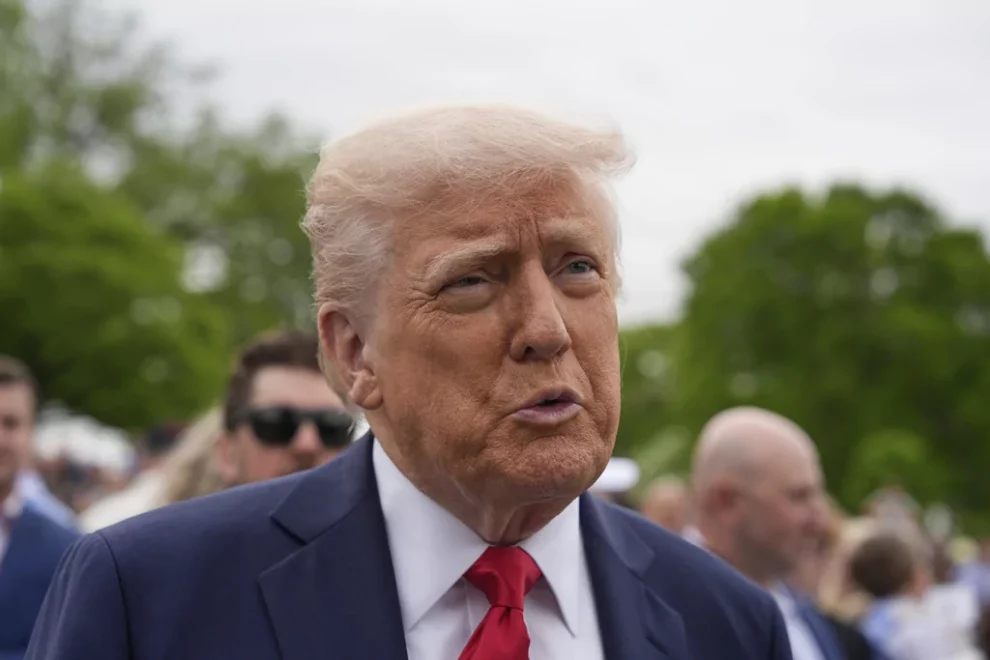As the 100-day mark of President Donald Trump‘s second term approaches, his power struggles with the courts over executive authority have emerged as a defining feature of his presidency.
More than 150 lawsuits have been filed by Democratic state attorneys general, advocacy groups, and civil rights lawyers, all seeking to halt or undo Trump’s efforts to reverse Biden-era policies and restructure key parts of the federal government.
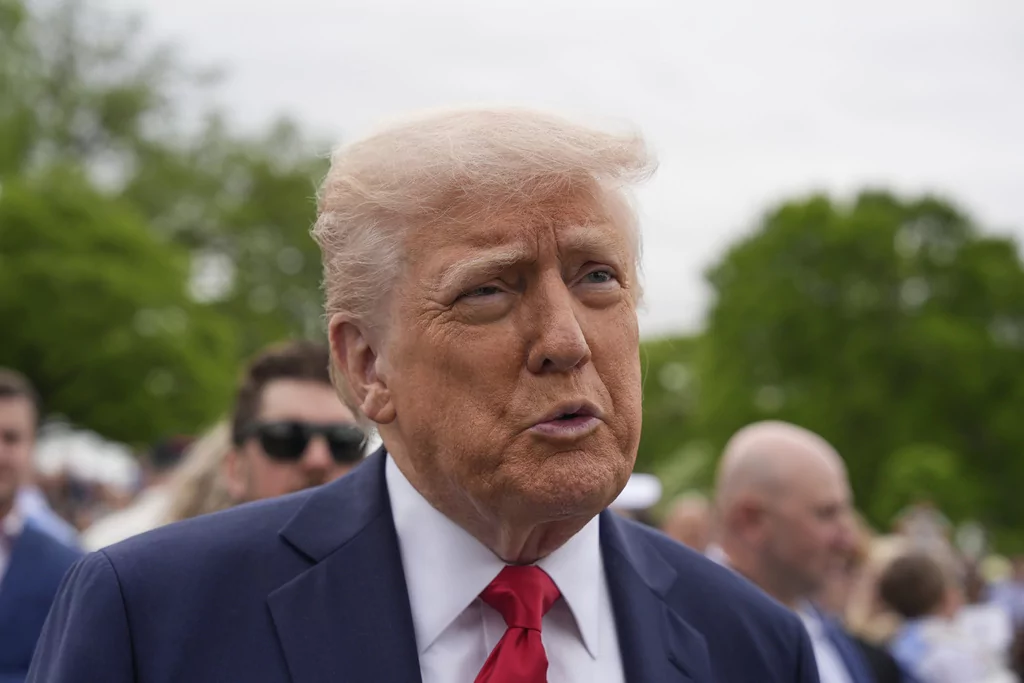
Although many of the president’s most aggressive moves have been paused or blocked by lower courts, they have allowed some of Trump’s efforts to exercise his Article II power to proceed, including some early victories at the Supreme Court. However, several of the decisions so far have been largely procedural and not on the full merits of the disputes at hand.
Still, the high court’s increasing involvement has shown a majority on the bench with an increased willingness to side with the executive branch on national security, administrative discretion, and jurisdictional limits.
Where Trump is seeing his biggest wins
Supreme Court halts return of mistakenly deported Maryland man
In an early procedural win for the Trump administration, Chief Justice John Roberts on April 7 issued a temporary stay of a lower court’s order requiring the Trump administration to facilitate the return of Kilmar Abrego Garcia, a Salvadoran national deported due to an administrative error despite a 2019 court ruling barring his removal.
The Department of Justice admitted the deportation was erroneous but pointed to past courtroom testimony that Abrego Garcia had gang ties to MS-13, thereby making him an “alien enemy” and thus not entitled to legal protections.

Solicitor General John Sauer has argued that the U.S. cannot compel El Salvador, a sovereign nation, to readmit a deportee — even in cases of government error. But Abrego Garcia’s legal team claimed the administration has routinely repatriated the wrongfully deported and called this case a “Kafka-esque mistake.”
While the Supreme Court has not yet ruled on whether to lift or extend the stay, the case remains active and is now being cited by civil liberties groups as evidence of broader due process failures in the administration’s immigration policies.
Supreme Court backs halt to DEI-related teacher grants
The Supreme Court on April 4 granted an emergency stay in a high-profile education funding case, halting a lower court’s order that required the Trump administration to immediately reinstate more than $65 million in teacher training grants.
The Education Department canceled these grants over concerns that they supported diversity, equity, and inclusion initiatives. The 5-4 decision, Trump’s first major win at the high court since returning to office, paused a temporary restraining order issued on March 10 by a Massachusetts federal judge.
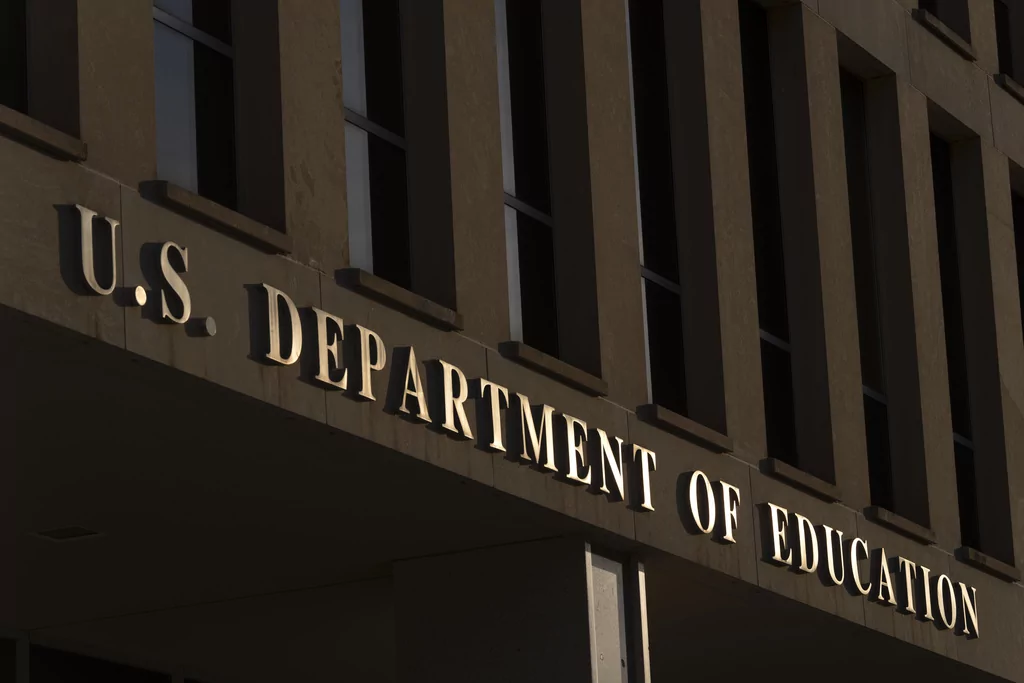
A majority on the bench found the government was “likely to succeed” in arguing that the lower court lacked jurisdiction under the Administrative Procedure Act and emphasized that grant recipients would not suffer irreparable harm while the stay remained in effect.
Justice Ketanji Brown Jackson, joined by Justices Sonia Sotomayor and Elena Kagan, dissented, saying the majority was “blessing” an “unlawful” move without proper judicial review.
Severance incentive for federal workers
Trump offered federal employees a severance package if they voluntarily resigned by Sept. 30. A federal employee union challenged the offer, saying it promised pay not yet authorized by Congress.
However, a federal judge in Massachusetts ruled on Feb. 12 that the union lacked standing to bring the case and dismissed it on jurisdictional grounds.
Court allows DOGE to continue despite legal firestorm

Trump established the Department of Government Efficiency by executive order, installing Elon Musk as its director. The agency’s mandate includes streamlining federal personnel, auditing performance, and consolidating data access across the government.
Civil service unions, public interest groups, and 14 states have filed lawsuits, alleging DOGE violates federal hiring and transparency laws and that Musk’s appointment bypasses Senate confirmation. Critics also accuse the agency of amassing unchecked power over career staff and sensitive federal systems.
A federal judge in Washington, D.C., declined to block DOGE’s operations or Musk’s appointment on Feb. 18, saying plaintiffs failed to show immediate harm. The broader legal challenges remain pending.
Where Trump is sustaining pushback by courts
DOGE gains access to sensitive data—courts intervene
DOGE has accessed databases across multiple agencies — including the Social Security Administration, the departments of Treasury, Education, and Labor, the Consumer Financial Protection Bureau, and the Office of Personnel Management — housing Social Security numbers, mental health records, tax data, and personnel files.
Privacy advocates, unions, and student groups argue DOGE’s data mining poses cybersecurity and legal risks. Multiple lawsuits seek to block the agency’s access to this information, citing violations of federal privacy and disclosure laws.
Where other lawsuits against DOGE information access stand:
• A Maryland judge temporarily barred DOGE from accessing SSA data on April 18.
• A New York court blocked access to Treasury databases. Ruling was narrowed on appeal on April 7.
• A New York judge declined to halt access to some Treasury data on April 11.
• A Maryland court froze DOGE access to OPM and Education Department records on April 24.
Alien Enemies Act deportations spark ongoing Supreme Court clash
The Trump administration’s push to deport Venezuelan migrants under the Alien Enemies Act has triggered escalating legal battles and rare weekend intervention from the Supreme Court.
After a 5-4 procedural win for Trump on April 7, which lifted a lower-court injunction and reaffirmed that detainees must seek habeas relief in the district where they are held, the administration appeared to press forward with deportation plans.

But just after midnight on April 19, the high court issued an emergency order temporarily halting the removal of dozens of migrants, many of whom are detained in Texas and alleged to be members of the Tren de Aragua gang.
The American Civil Liberties Union, representing the migrants, argued the administration was flouting the Supreme Court’s directive to provide detainees with adequate notice and time to seek legal relief. According to court filings, detainees were handed English-language removal notices late Thursday and given 24 hours to respond despite lacking instructions on how to challenge the order.
Civil liberties groups say the government’s actions amount to defiance of the court’s April 7 mandate and call into question whether the Alien Enemies Act, a wartime measure rarely invoked, is even applicable given that the U.S. is not at war with Venezuela.
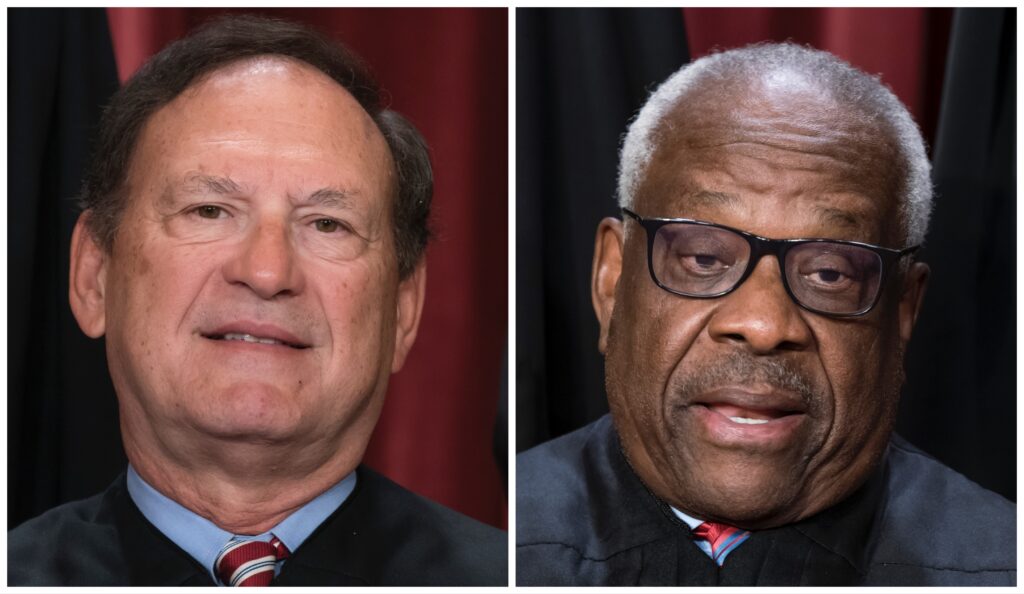
Lawyers for the DOJ have countered that the administration is complying with the law and warned the court against premature interference. Justices Samuel Alito and Clarence Thomas echoed that view in a dissent published later that evening on April 19, calling the court’s emergency halt “hasty” and premature.
Still, a majority appeared to accept the ACLU’s argument that deportations were imminent, prompting the late-night block.
The ACLU on Monday requested the high court to broaden its order and clarify what due process is required before removals can proceed under the 18th-century statute.
Executive order to end birthright citizenship faces Supreme Court test
Trump has ordered federal agencies to stop issuing citizenship documentation to children born on U.S. soil to undocumented immigrants and temporary visa holders.
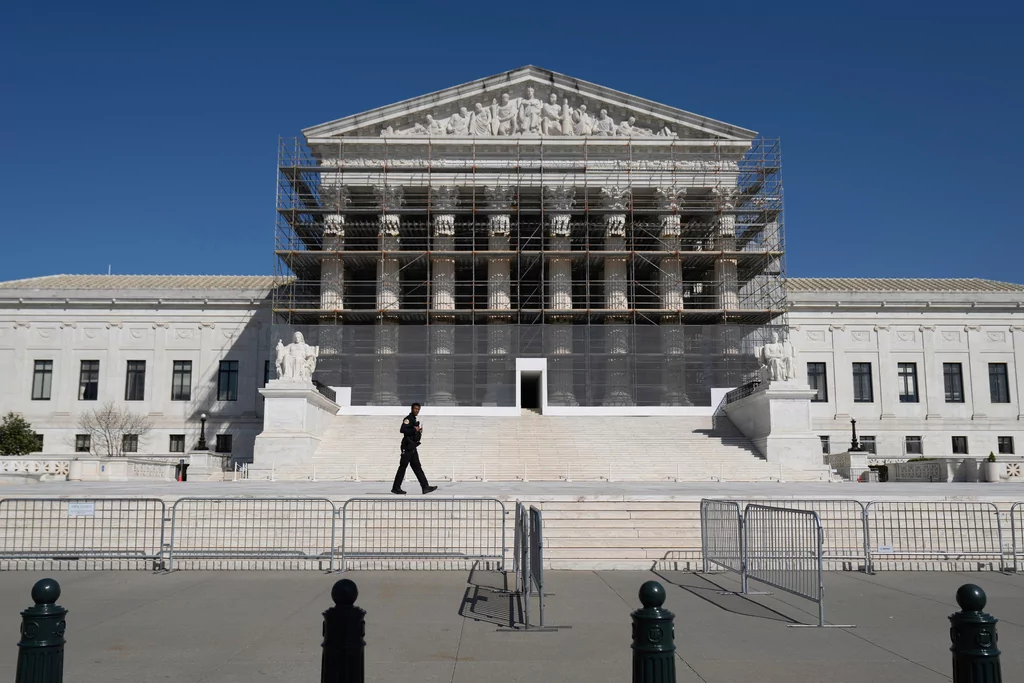
Federal judges in Maryland, California, and New York quickly blocked the order, citing clear conflicts with the 14th Amendment. One judge said it “conflicts with the plain language” of the Constitution.
Civil rights groups argue the move violates birthright citizenship protections enshrined in the Constitution. But Trump’s legal team is not asking the Supreme Court to rule on the merits — only to rein in what they call sweeping, nationwide injunctions.
The justices have scheduled a special session for May 15 to weigh whether to lift or narrow those court orders and allow the policy to move forward in some jurisdictions.
Transgender military ban faces key appeals court test
Trump’s order banning military service for individuals with gender dysphoria is under review by a Washington, D.C., appeals court, where DOJ attorney Jason Manion argued Tuesday that the policy falls within the president’s core military powers.
Manion said the ban targets only those seeking medical transition, not all transgender individuals, and claimed it would enhance military readiness. But Judge Cornelia Pillard pressed him on the policy’s logic, asking whether it effectively bars transgender people from serving “as” transgender.
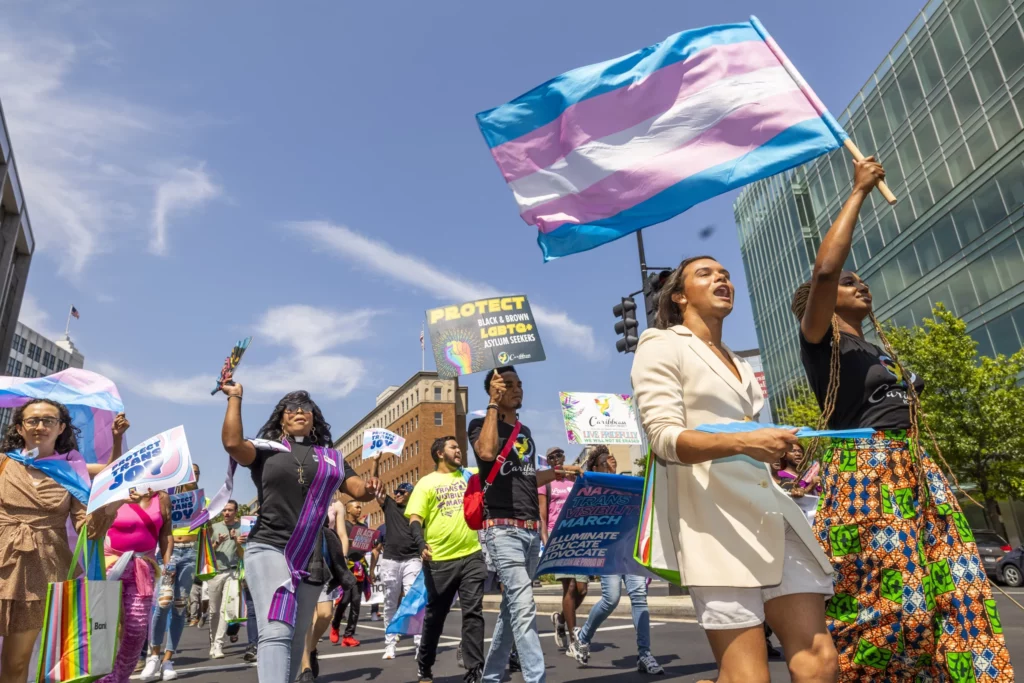
Two federal judges have blocked the policy, calling it likely unconstitutional.
The administration is asking the appeals court to pause those rulings — and has signaled it will soon seek Supreme Court intervention after a separate loss at the 9th U.S. Circuit Court of Appeals.
Plaintiffs say the order discriminates against decorated service members without evidence. Their lawyer, Shannon Minter, called it a rare case of the government “openly relying” on “animosity” as policy justification.
Restrictions on transgender inmates
An executive order required transgender inmates to be moved to male facilities and prohibited transgender treatments in federal prisons.
Judges in Washington, D.C., and Massachusetts temporarily blocked the policy as litigation progressed.
Ban on gender-related procedures for minors
Trump signed orders defining sex strictly as male or female at birth and directed agencies to cut off funding to providers of transgender procedures to minors.
Judges in Baltimore and Seattle halted enforcement.
The Supreme Court’s decision in United States v. Skrmetti could provide critical legal backing for the Trump administration’s push to restrict transgender procedures for minors.
If a majority on the high court sides with Tennessee and upholds its law banning puberty blockers and cross-sex hormones, it could undercut the legal rationale used by lower courts to block Trump’s recent executive orders.







